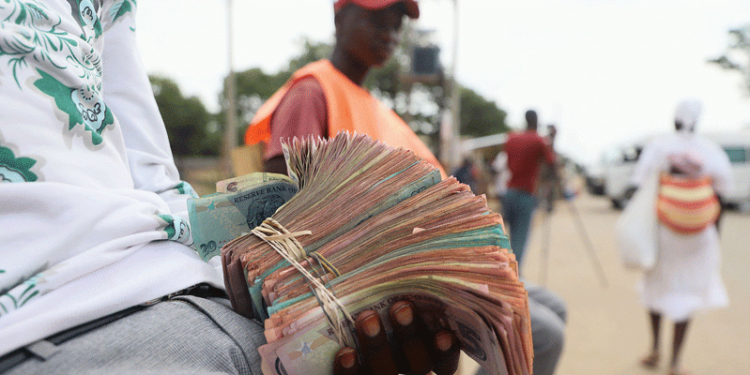VENDORS in Harare have stopped taking bond notes following introduction of a new currency, (Zimbabwe Gold) ZiG dollar.
This is despite Reserve Bank of Zimbabwe (RBZ) Governor John Mushayavanu’s declaration the old notes cease to be legal tender at the end of April.
Mushayavanhu launched Zimbabwe’s new gold backed currency on Friday after heavy devaluation of the bond note, which now traded at ZW$25, 000 to US$1 on the more accessible black market.
“I do not know whether bond notes still work. What if I let people use them at my stall and later know they are now worthless,” said Jane Makura, a vendor in Dzivarasekwa high density suburb.
“This is another mistake. They should just let us trade in US dollars and leave this culture of changing currencies and removing zeros.”
Most tuckshops in Dzivarasekwa, Warren Park and Highfields are no longer taking the notes.
The new ZiG, described by NewzWire as “Mushayavanhu’s clever way of removing zeros from Zimbabwe’s currency”, has been introduced at an exchange rate of US$1 to ZiG$13.
Tatenda Dube told this publication he was still confused about the whole matter hence his decision not to accept the bond notes.
“I am now confused, I am yet to meet my attendant so that I get to understand how he thinks we should go about it. They should have taken time to inform us about it rather than spring it on us like that.”
Government introduced bond notes in 2016 at par with the US dollar in value.
However, market forces and preference for the more stable US dollar devalued it.
The new regime however does not discard Zimbabwe’s multi currency regime which recognises US dollars, pounds and a bucket of foreign currencies as legal tender.
“The introduction of the ZiG currency risks repeating the mistakes of the past. Instead of addressing the root causes of our economic challenges, it offers a temporary fix that fails to inspire confidence among Zimbabweans,” said ActionAid in a statement.
Most major retail outlets such as supermarkets are still taking the notes though.
Source NewZimbabwe









